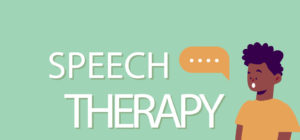For many older adults, the thought of seeking speech therapy can be daunting. Whether grappling with age-related changes in speech and communication or facing the aftermath of a stroke or neurological condition, the prospect of addressing these challenges may evoke feelings of fear, uncertainty, and even embarrassment. However, it’s essential to remember that speech therapy is not just for children—it’s for individuals of all ages who aspire to improve their communication skills, regain their confidence, and reclaim their voice. In this article, we’ll explore why older adults should never be afraid to seek speech therapy and the transformative benefits it can offer.
First and foremost, it’s crucial to dispel the stigma surrounding speech therapy for older adults. Contrary to common misconceptions, seeking speech therapy is not a sign of weakness or incompetence—it’s a proactive step towards enhancing one’s quality of life and maintaining independence. By reframing speech therapy as a positive and empowering experience, older adults can overcome feelings of shame or embarrassment and embrace the support and guidance offered by skilled speech therapists.
As we age, changes in speech and communication are natural and inevitable. From decreased muscle strength and coordination to changes in hearing and cognitive function, a variety of factors can contribute to speech difficulties in older adults. However, through targeted interventions and personalised treatment plans, speech therapists can help older adults address these challenges and regain clarity, confidence, and control over their communication.
For older adults who have experienced a stroke or neurological condition, speech therapy can be instrumental in the recovery process. Whether working to improve speech articulation, enhance language comprehension, or regain swallowing function, speech therapists offer specialised techniques and strategies tailored to each individual’s unique needs. Through consistent effort, perseverance, and the guidance of skilled professionals, older adults can make significant strides towards restoring their communication abilities and reclaiming their independence.
Ultimately, the goal of speech therapy for older adults is to enhance their overall quality of life. By improving communication skills, promoting social engagement, and fostering independence, speech therapy empowers older adults to remain active participants in their communities, maintain meaningful relationships, and enjoy a fulfilling and enriching lifestyle. Moreover, the benefits of speech therapy extend beyond communication—they encompass cognitive stimulation, emotional support, and a renewed sense of self-confidence and self-worth.
For older adults considering speech therapy, it’s essential to approach the journey with an open mind and a willingness to embrace the process of growth and transformation. While the road may be challenging at times, the rewards of improved communication, increased confidence, and enhanced well-being far outweigh any initial fears or apprehensions. By taking the first step towards speech therapy, older adults can embark on a journey of self-discovery, empowerment, and renewed vitality—a journey that proves it’s never too late to reclaim your voice and live life to the fullest.




